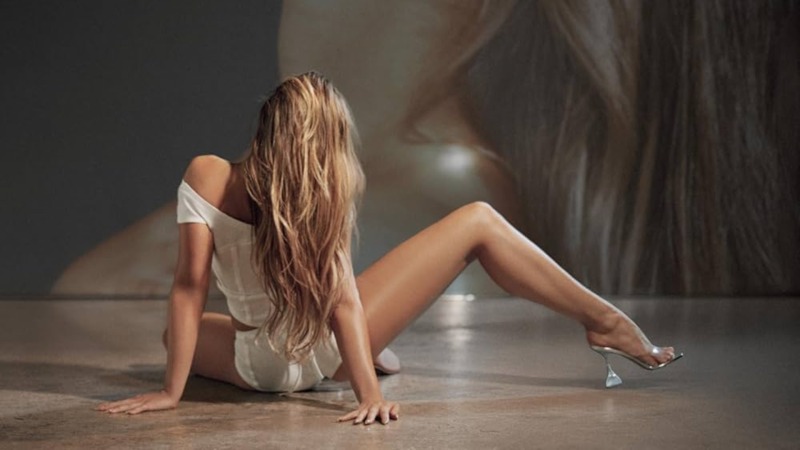Tate McRae Fades into the Background on So Close to What
Apart from a few notable exceptions, the songs on Tate McRae's new album blend into a miasma of nasal, mumbled lyrics about love affairs and submerged-sounding R&B-adjacent pop melodies.

Press around Tate McRae’s third album So Close to What keeps heralding her as the next Britney Spears—so much so that our Y2K pop queen herself ended up interviewing the up-and-comer for V Magazine. But aside from McRae’s insane dancing talent and the sexier tracks on the new record, the similarities between the two end there. People forget that Britney had actual hooks—and you could understand what she was singing. McRae, on the other hand, sounds like she’s vocalizing around a half-chewed bite of pancakes still marinating in her mouth. I would call So Close to What aggressively mediocre, but aggressively implies a certain amount of energy or passion which this music severely lacks. With a few exceptions, McRae’s latest album is decidedly mid.
“Miss possessive” is a somewhat promising start; over a mischievous, snappy beat, McRae offers up her version of the jealous girlfriend song. It’s no “The Boy Is Mine,” but it’s catchy and serviceable, and definitely taps into that Y2K sound she claims to be inspired by. “2 hands” invites you to groove along with a decent hook and a much better music video as McRae pleads for her partner to forget his presents and empty words—all she needs is his touch. The standout track by far is “Sports car,” which channels the sexiness of “Buttons” by The Pussycat Dolls and “Wait (The Whisper Song)” by the Ying Yang Twins. One of my main complaints about McRae is her enunciation, or lack thereof, but on the whispered chorus of “Sports car,” you hear her loud and clear as she tells a would-be hookup what she wants to do with him. Even the slightly childish euphemism on the refrain (“Oh, but you got a sports car / We can uh-uh in it”) can be forgiven because this song simply works. I highly recommend the music video, in which an anonymous hooded figure watches the pop artist try out different personas through a one-way mirror, à la a peep show—and in the end, it’s been McRae looking at herself the whole time. It’s a clever commentary on the various facades public figures adopt in order to market themselves.
But outside of these tracks—which, by the way, are good but not great—nearly everything else blends into a miasma of nasal, mumbled lyrics about love affairs and submerged-sounding R&B-adjacent pop melodies. There is simply nothing here to grasp onto—no memorable hooks, no insightful lyricism, no captivating production choices; the word that comes to mind is soupy. “Revolving door” is like musical edging, with a fast beat that builds to a whole lot of nothing, while not even a key change can save the dullness of “Signs.” The latter track also falls into old tropes about women not saying what they mean, as McRae tells her partner, “Say, ‘I need space,’ don’t look at the door / ‘I hate you’ means ‘I need you more.’” If you’re going to try to revive early Y2K pop—which I would argue she doesn’t do here—at the very least update the pastiche and don’t fall into tired misogynist stereotypes. “Greenlight” just makes me wish I was listening to Lorde’s much better track of the same name, or Taylor Swift’s “Bad Blood,” which McRae references on the chorus (“Band-Aids and bullet holes don’t go”).
-

-

-

-

-

-

-

-

-

-

-

-

-

-

-

-

-

-

-

-

-

-

-

-

-

-

-

-

-

-

-

-

-

-

-

-

-

-

-

-








































